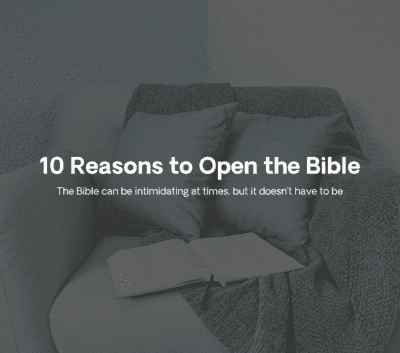God’s grace will either make you angry or it will make you worship.
When you feel that you can offer an explanation for your sins, you undermine your own repentance. And the tragedy is that when a man undermines his own repentance, it won’t be long before he is angry with God: “It’s all God’s fault. God made me like this. God put me in this position.”
Explaining sin is big business in America, and the tragedy is that it leads many into the dead-end of long-term anger with God.
If you’ve been encouraged in some way to explain away your sin, this is where it leads. Explaining sin undermines repentance and undermining repentance leads to anger with God.
God’s grace makes some people angry
If you read the story of Jonah, you may notice how the theme of anger runs right through the last chapter:
- “Jonah was greatly displeased and became angry” (4:1).
- God asks Jonah “Have you any right to be angry?” (4:4).
- God says again “Do you have any right to be angry?” (4:9).
- Jonah says “I am angry enough to die” (4:9).
Jonah is angry about God’s grace: “I knew that you are a gracious and compassionate God, slow to anger and abounding in love” (4:2, emphasis added). This chapter takes us into a surprising truth: God’s grace can make you angry.
If you want to discover how God’s grace could ever make people angry, read Romans 9. Of all the chapters in the Bible, Romans 9 is the starkest statement of what God’s grace actually means.
Many folks think that the grace of God means simply that God is kindly benevolent to all people. But Paul makes it clear that God’s grace is much more personal and much more wonderful than that:
Romans 9
“Jacob I loved, but Esau, I hated” (Romans 9:13).
That’s one of the most difficult statements in the Bible. There’s an instinct within us that wants to say “It’s fine for You to love Jacob, but then You have to do the same for Esau.”
Some people will think that this is unfair. But Paul writes:
What then shall we say? Is God unjust? Not at all! For [God] says to Moses I will have mercy on whom I have mercy, and I will have compassion on whom I have compassion. (Romans 9:14-15)
In other words, God says “It’s up to me to decide where I exercise mercy.” The obvious conclusion is that “it does not, therefore, depend on man’s desire or effort but on God’s mercy” (9:16). Salvation does not come from your effort or desire to be saved, but from His great mercy.
Paul goes on to deal with an obvious objection: “One of you will say to me: Then why does God still blame us? For who resists His will?” (9:19). Notice the biblical answer: “But who are you, O man, to talk back to God?” (9:20). God says, “Excuse me, are you telling me what I can and cannot do?”
Is it not an expression of our pride and arrogance that we make so much of our own freedom and so little of God’s? We feel that we must be free to choose or reject Him, but we do not feel that He should be free to choose or reject us.
The Fruit of Embracing God’s Freedom
Our God is in heaven; He does whatever pleases Him. (Psalm 115:3, NIV)
If you are really struggling with this, you are not alone. One reason why many struggle is that it seems like God’s freedom makes His love less —Jacob I have loved, Esau I hated. If God really is loving, should He not treat all people the same?
A love that treats everyone the same is a very weak kind of love. Let me tell you about a strong love: I love my wife. That means I treat nobody else the same! The Bible speaks about the love of Christ like this: He has a bride! (John 3:29).
Some folks are so committed to the idea that God must treat everyone the same that they think of God opening the door of salvation and then standing back, waiting to see who will come in.
But the Bible speaks of a greater love than that, in which God takes the initiative, not only in sending His Son into the world, but by breaking into the lives of particular people to save them.
That’s what God did with His people Israel. Listen to this great statement about God’s particular love for His covenant people:
“You are a people holy to the Lord your God. The Lord your God has chosen you out of all the peoples on the face of the earth to be his people, his treasured possession” (Deuteronomy 7:6).
Why did God love them in this special way?
“The Lord did not set his affection on you and choose you because you were more numerous than other peoples, for you were the fewest of all peoples” (7:7).
Why then did God set His affection on them?
“It was because the Lord loved you and kept the oath he swore to your forefathers that he brought you out with a mighty hand and redeemed you from the land of slavery, from the power of Pharaoh king of Egypt” (7:8).
Why Did God Love You?
Why did God love you? Because He loved you—no other reason—not because of your background, your prayers, your ministry, your commitment, your faith, or your good life.
God set His love on you simply because He loved you. That is why He chose you out of all the people on the face of the earth to be among His treasured possession.
Going back to the story of Jonah, God extended this saving love to Nineveh, the capitol of terror and torture. Why Nineveh? Of all the cities of the world, why did God send a prophet there? Of all the cities God could have chosen, why did He bring revival to Nineveh?
“Our God is in heaven. He does whatever pleases Him.” Nobody tells Him what to do! And that made Jonah mad.
While it may be that we’d be more comfortable with a God who operates within our framework, that is not the God of the Bible.







